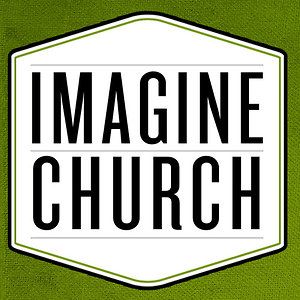Zitat: 'Imagine A Church'
That will help to explain the strange "Z" word listed in the title of this post. That being said, I'm always keeping my eyes and ears open for good Lutheran quotes that encourage prayerful consideration and deeper study of God's Word and His Church. Here's the latest.
I haven't read much by Gene Edward Veith, but I think I'm going to have to start. From what I can tell, he seems to be a prominent Christian and scholarly voice, but from a Lutheran perspective. Anyway, check out this introduction to a piece he wrote way back in 1998.
Imagine a church that is both evangelical -- proclaiming the free forgiveness of sins through faith in Jesus Christ -- and sacramental, centering its spiritual life in the regenerating waters of baptism and the Real Presence of Christ in Holy Communion. Imagine further a church that is strongly grounded on Scripture, but yet avoids the solipsism of individual interpretation in favor of a comprehensive, intellectually rigorous and imminently orthodox theological system. Imagine a worship service that features both strong preaching and the historic liturgy. Imagine that this is a historical church with a rich spiritual tradition, but without legalism, Imagine, in short, a church that has some of the best parts of Protestantism and the best parts of Catholicism. Finally, imagine that this church body is not some little made -- up sect, but one of the largest bodies of Christians in the world.
Such a church might seem like what many Christians, disaffected by both the vacuity of liberal theology and the shallowness of American evangelicalism -- are dreaming of. Such a church exists. It goes by the admittedly inadequate name "Lutheran."
Worldwide, there are some 60,000,000 Lutherans on the books, making it the largest Protestant tradition of them all. There are around 9 million Lutherans in the United States, but five million in Africa and another five million in Asia -- Brazil has over a million, and it is one of the dominant religions of Papua New Guinea. In the United States, there are about the same number of Missouri Synod Lutherans (2.5 million) than there are Episcopalians.
And yet, the Lutheran church seems almost unknown in American Christianity. Catholics, Episcopalians, Baptists, Charismatics, and Calvinists are well-represented in theological debates, opinion polls, and articles in Christian publications, but Lutherans -- who have their own distinctive approach to everything from salvation to politics -- are often theological wallflowers.
Billy Graham called Lutherans "the sleeping giant." If Lutheranism is the invisible church, or, to paraphrase what Luther said of God, the church that hides itself, this is partly its own fault and partly the result of its theological tension with American culture. Nevertheless, Lutheranism has much to offer Christendom as a whole. As a church body with a thoroughly-worked-out theology, which it actually follows, Lutheran denominations have retained their orthodoxy more successfully than most. But more than that, Lutheran theology -- and spirituality -- is animated by a dynamic polarity in which divisive theological controversies are put into balance and thus resolved.
*- Gene Edward Veith
The Ecumenical Polarities of Lutheranism
That entire commentary alone is full of so much spiritual gold so I encourage you to take some time to read it. In fact, I'll be reading it again myself.
In a Lutheran Layman's terms, you don't have to simply imagine a church that is faithful to God's Word or faithful in putting that Word into practice, because she truly exists as the Lutheran Church with Christ still reigning as her head.
[NOTE: As you know, I am a newly converted Confessional Lutheran who recently escaped American Evangelicalism. That being said, please contact me ASAP if you believe that any of my "old beliefs" seem to have crept their way into any of the material you see published here, and especially if any of the content is not consistent with Lutheran doctrine -- in other words, if it's not consistent with God's Word -- so that I can correct those errors immediately and not lead any of His little ones astray. Thank you in advance for your time and help. Grace and peace to you and yours!]
Share|















No comments:
Post a Comment
Thank you for visiting A Lutheran Layman! Please feel free to leave a comment or a question since we do not exercise censorship. We've seen a similar policy with other blogs and it's worth repeating: Please act as if you're a guest in my home, and we'll get along just fine. I think anyone would agree that the kind of back-and-forth that is characteristic of blogs/chat forums and social media is becoming tiresome for all of us. Still, we should confess, edify, and love (and contend and defend when needed). Bottom line? Search the Scriptures! Apply Acts 17:11 to anything and everything you find here and, if you do happen to disagree with something you find here (which is certainly ok), or think I'm "irresponsible" and "wrong" for writing it, then please refute my position by supporting yours with Scripture and/or the Confessions. I don't think that's an unreasonable request, especially for those who identify themselves as "Christians" here, right? Besides, Proverbs 27:17 tells us "Iron sharpens iron, and one man sharpens another" and 2 Timothy 3:16 says, "all Scripture is breathed out by God and profitable for teaching, for reproof, for correction, and for training in righteousness." If you have an opinion that's great, I welcome it, but try to support it using God's Word. I mean, if the goal here is to help us all arrive at the truth of God's Word (myself included), then it should be easy to follow through on this one simple request (I'm talking to all you "Anonymous" visitors out there). Grace and peace to you and yours!